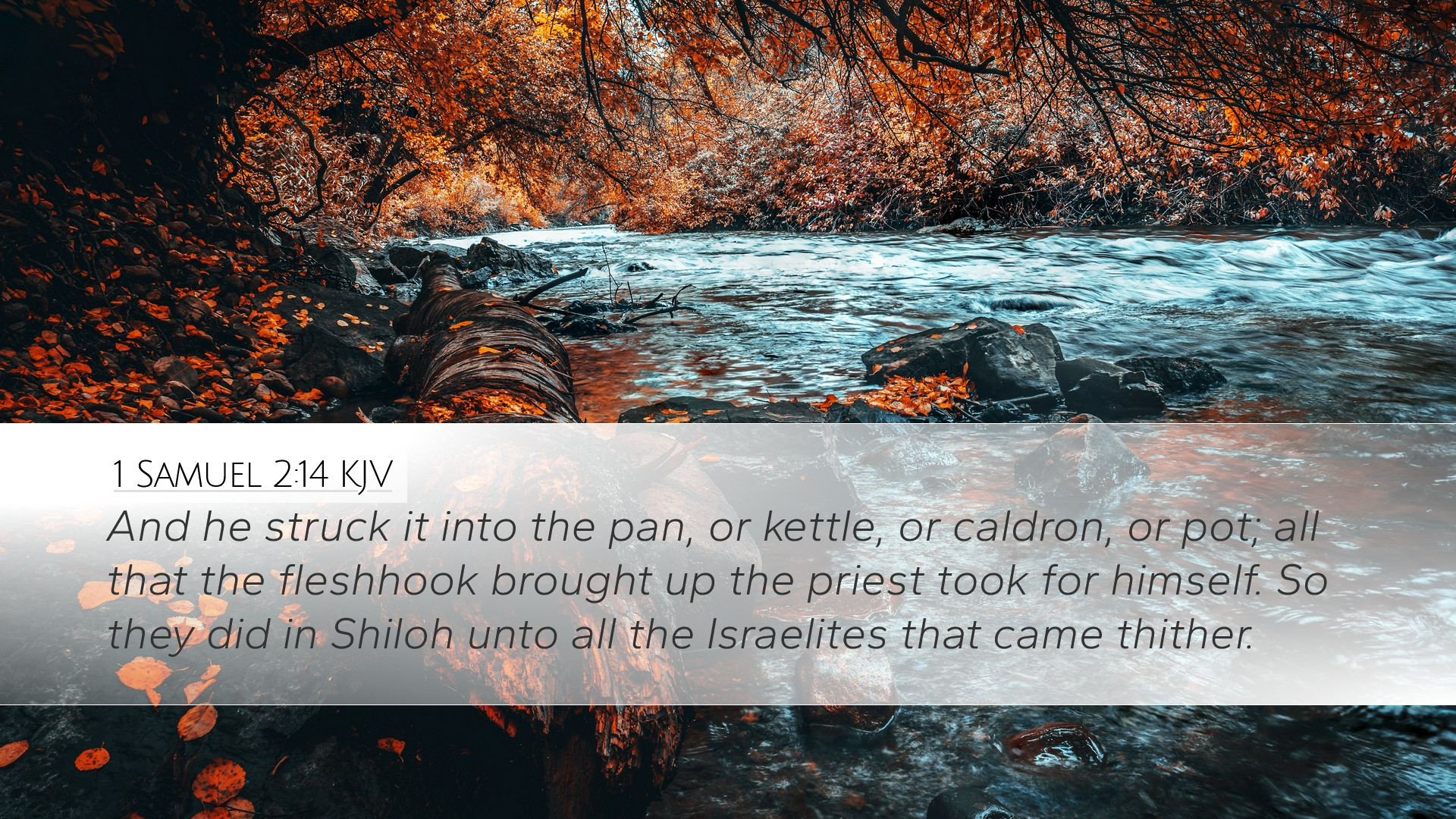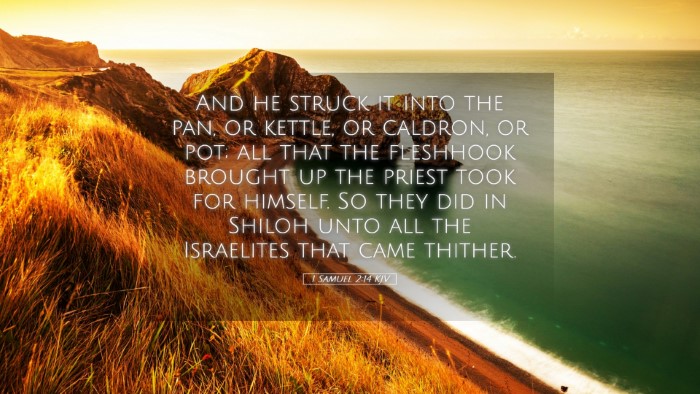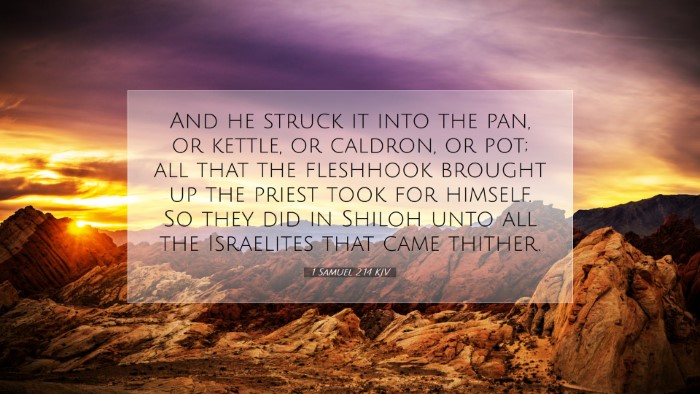Commentary on 1 Samuel 2:14
The verse 1 Samuel 2:14 states: "And he struck it into the pan, or kettle, or caldron, or pot; all that the flesh brought up the priest took for himself." This verse forms part of the narrative addressing the corrupt practices of the priests during the time of Eli. In order to understand the implications of this verse, we will combine insights from notable public domain commentaries including those by Matthew Henry, Albert Barnes, and Adam Clarke.
Contextual Background
To provide a fuller understanding, it is critical to explore the cultural and religious context of the sacrificial system established in Israel. The priests of Israel were given a specific portion of the sacrifices as their rightful share. However, the truth of Eli's sons, Hophni and Phinehas, reveals a departure from these practices. Their actions serve as a significant warning regarding the exploitation of divine ordinances for personal gain.
Verse Breakdown and Insights
-
Matthew Henry's Commentary:
Matthew Henry highlights the blatant avarice and sacrilegious behavior of Eli's sons. He explains that the mode of their operation, through which they took the priests' share, reflects not only a violation of the Law but also an affront to God’s prescribed rituals. Henry notes that their greed showcased a fundamental disregard for the holiness of the offerings to God.
Henry emphasizes that such actions resulted in the desecration of the sacred, leaving a glaring testimony against the leaders of God’s people, who should be exemplars of righteousness.
-
Albert Barnes' Commentary:
Albert Barnes provides a suitable exposition on the implications of the verse for understanding the priestly role. He explains that the act of taking all the flesh signifies an unholy preoccupation with personal gain rather than fulfilling their sacrificial duties properly. Barnes articulates that the metrics of ancient Israel’s sacrificial rite were intended to be a means of worship and self-denial, which were disregarded by Eli’s sons in their selfish pursuits.
Furthermore, Barnes points out that their actions not only led them and their household into condemnation but also caused the people to despise the sacrifices of the Lord, leading to a serious breach in the relationship between the worshippers and the divine.
-
Adam Clarke's Commentary:
Adam Clarke delves into the nature of the utensils mentioned in the verse: the pan, kettle, and caldron. He suggests that these instruments for cooking the sacrifices were both practical and symbolic. The choice of which instrument to use and what portion to take became tools of manipulation for Eli’s sons. Clarke strongly notes that this behavior was indicative of larger issues of corruption in the temple system during this period.
Clarke also emphasizes that the apportionment of food from sacrifices was not merely a mundane act but rather a reflection of the communion between God and His people. The corruption of this practice drew the divine disfavor that would ultimately lead to dire consequences, as detailed later in the narrative.
Theological Reflections
The actions of Eli's sons present a profound theological lesson that remains applicable to contemporary believers. The exchange of reverence for greed highlights the human propensity to distort divine intentions for personal interests. The verse serves as a solemn reminder of the sacred nature of worship and the responsibilities that come with leadership in the church. The neglect of spiritual integrity has dire consequences, both for leaders and congregations alike.
Moral and Ethical Applications
Christian leaders and congregations should cultivate a posture of humility and reverence in their worship practices. It is essential to recognize that the offerings presented to God—whether they are material, spiritual, or emotional—must be treated with the utmost sanctity. Observing the patterns of Eli’s sons provides a prophetic warning against compromise, revealing that a pervasive lack of integrity can lead to lasting damage within the community of faith.
Conclusion
In summary, 1 Samuel 2:14 exposes the corruption that can arise within God’s ordained structures when individuals prioritize their desires over divine guidelines. Through synthesizing insights from Matthew Henry, Albert Barnes, and Adam Clarke, it becomes evident that this verse calls for reflection on integrity in worship practices. Leaders in ministry are encouraged to hold fast to biblical standards and commit to a sincere relationship with God, ensuring that the holy acts of worship reflect not only personal reverence but also communal fidelity to His ways.


